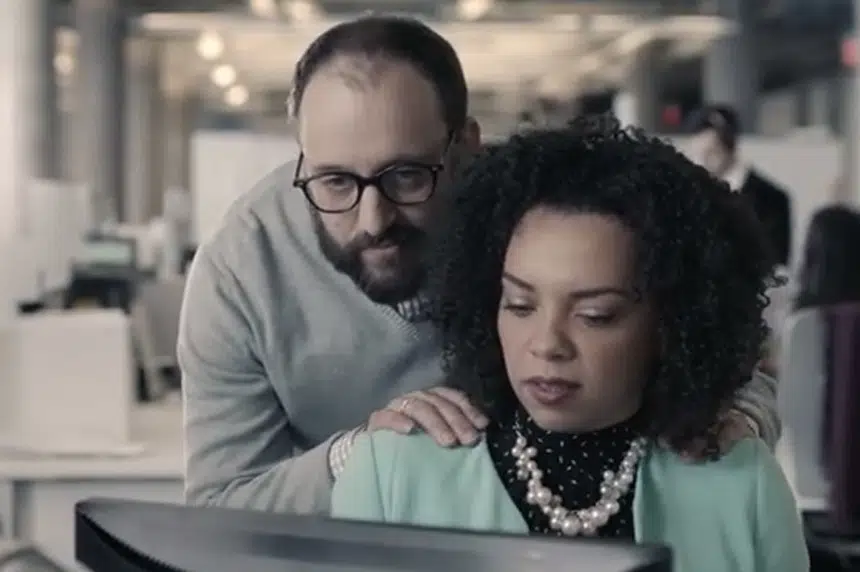A video with the hashtag #WhoWillYouHelpSK is part of a new awareness campaign about not being a bystander to sexual assault in Saskatchewan.
The same video is already part of a public awareness campaign in Ontario, but it is now being shared online and shown on television and in movie theatres across Saskatchewan.
“We have the highest provincial rates of violent crime, of domestic violence, of intimate partner homicide,” Premier Brad Wall said as he launched the awareness campaign at the legislature on Thursday.
When he first saw the video during a presentation by Ontario Premier Kathleen Wynne, he felt compelled to bring it to the province.
The video shows young men thanking people for not saying anything as they slip drugs into a drink, share photos on a phone, and take advantage of a girl who had been drinking at a party.
“I just thought it was blunt and that’s the kind of discussion we need,” he said. “I thought it was right in your face when you watch it and it asks the viewer a question, what are you prepared to do to help?”
Wall says the Ministry of Justice is reviewing other initiatives to address the low rate of victims reporting sexual assault.
“Women and others who are affected by violence need to feel confident that when they come forward justice will be served,” he said.
He says the first step is building awareness to know that it is not right, it is a crime.
Dianna Graves is the executive director of Sexual Assault Services in Saskatchewan. She says the video is effective because it is shocking and she knows it’s very realistic.
“It hits me really viscerally because I just I know that it happens and it’s far too common,” Graves said. “It tells me, which informs all the other work that I do, that we’re all bystanders because we don’t know what to do. We’ve been silenced and shamed to not talk about sexual assault because it’s an icky subject.
Graves says that’s why awareness and education is so important to begin to resolve this issue.
She says only 10 per cent of sexual assaults are actually reported to the police, either due to a lack of evidence or because the victims are ashamed. She adds that there is a very big problem of blaming the victims of sexual assault, asking them why they were out that late or why they were drinking so much.
“People don’t want to come forward when they feel it’s their fault,” Graves said.
She hopes the video will continue to be shared on social media, to get the message out to everyone that they must stand up and say something if they are a victim or a bystander.











